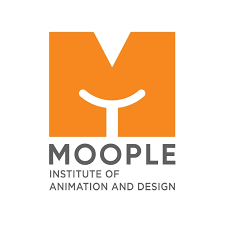Animation has evolved into a multi-faceted industry, offering a plethora of opportunities for creative individuals. Whether it’s bringing characters to life in films, designing immersive worlds in video games, or crafting engaging visual narratives in advertising, animation has become an integral part of entertainment and communication. Aspiring animators often find themselves at a crossroads when it comes to choosing the right path for their education. Two key areas of study that play a crucial role in shaping animation professionals are contextual and theoretical studies.
Contextual Studies in Animation:
Contextual studies in animation delve into the historical, cultural, and socio-political aspects that influence the art form. It explores how animation intersects with broader contexts such as art, film, literature, and society. By understanding the roots and evolution of animation, students gain insights into the significance of storytelling, visual language, and artistic expression.
Courses in contextual studies may cover a wide range of topics, including:
- History of Animation: From the early experiments of pioneers like Winsor McCay to the digital revolution of the 21st century, studying animation courses after the 12th provides a comprehensive overview of its development over time.
- Cultural Perspectives: Animation is a reflection of cultural values, beliefs, and traditions. Exploring diverse cultural perspectives not only enriches storytelling but also fosters empathy and understanding across different communities.
- Critical Analysis: Learning to critically analyze animated films and artworks helps students develop a discerning eye and a deeper appreciation for the craft. They examine themes, motifs, and techniques employed by animators to convey meaning and evoke emotions.
- Industry Insights: Contextual studies also offer insights into the animation industry, including its business practices, technological advancements, and evolving trends. Understanding the market landscape equips students with the knowledge to navigate their careers successfully.
Theoretical Studies in Animation:
Theoretical studies in animation focus on the principles, techniques, and aesthetics that underpin the art form. It provides students with the theoretical framework and practical skills necessary for creating compelling animations across various mediums.
Key areas of study in theoretical animation include:
- Animation Principles: Whether it’s timing, squash and stretch, or anticipation, mastering the fundamental principles of animation at an animation academy is essential for creating believable movement and character performance.
- Storyboarding and Scriptwriting: Effective storytelling lies at the heart of animation. Courses in storyboard art and scriptwriting teach students how to develop narratives, visualize scenes, and structure their ideas for maximum impact.
- Character Design and Development: Characters are the soul of animation. Through character design and development courses, students learn to create memorable and expressive characters with distinct personalities, traits, and backstories.
- Technical Skills: From traditional hand-drawn animation to computer-generated imagery (CGI), students acquire technical skills in various animation techniques and software tools. They learn to use animation software such as Adobe Animate, Toon Boom Harmony, and Autodesk Maya to bring their ideas to life.
Why Pursue Animation Courses after 12th?
Choosing animation as a career path after completing high school offers numerous benefits:
- Creative Outlet: VFX and Animation courses allow individuals to unleash their creativity and imagination, offering endless possibilities for self-expression and artistic exploration.
- Diverse Career Opportunities: Animation is a versatile field with opportunities in film, television, advertising, gaming, and web content creation. Whether you aspire to be a character animator, concept artist, storyboard artist, or visual effects supervisor, there’s a niche for every talent.
- Global Demand: With the growing demand for animated content across platforms, animation professionals are in high demand worldwide. Pursuing animation courses equips students with the skills to thrive in a dynamic and competitive industry.
- Collaborative Environment: Animation is a collaborative medium that thrives on teamwork and interdisciplinary collaboration. Animation courses provide students with opportunities to collaborate with peers from diverse backgrounds, fostering creativity, communication, and problem-solving skills.
In conclusion, contextual and theoretical studies form the foundation of a comprehensive animation education, providing students with the knowledge, skills, and insights to succeed in the dynamic world of animation. By understanding the broader cultural and theoretical frameworks that shape animation, aspiring animators can hone their craft and embark on fulfilling careers in this exciting field. So, if you’re passionate about storytelling, visual arts, and technology, pursuing animation courses after 12th could be the first step towards realizing your creative dreams.

